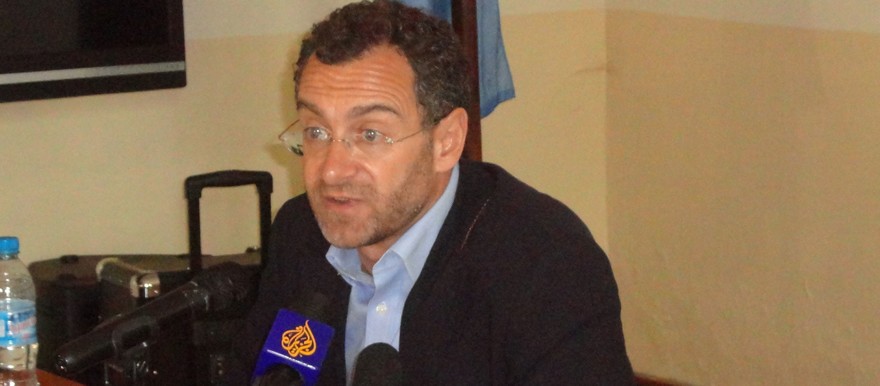The top UN aid official in South Sudan has expressed ‘outrage’ at the continuing fighting in the country saying it is preventing people from planting fields, tending cattle and accessing aid, which will eventually push them into starvation.
Nearly three months after the signing of the Cessation of Hostilities between the two main factions in the ongoing civil war, fighting continues, with reports confirming that commanders have not been ordered by their political leaders to stand down.
Toby Lanzer, the UN Humanitarian Coordinator and Deputy Representative of the United Nations Secretary General in South Sudan, briefed the media on Tuesday in Juba about the humanitarian situation in the country.
In his opening remarks he said he is was angry about the latest developments in Unity state, where he expects fresh fighting to have a heavy humanitarian cost in terms of human lives and in terms of financial costs to the humanitarian donor community.
“I feel a certain sense of outrage today. I feel a sense of outrage because I have spent a good part of this night and a lot of this morning dealing with the immediate consequences of violence in Bentiu in Unity state where violence is ongoing inside the city,” he said.
Lanzer added, “I’m outraged that there are hundreds of women and children trying to stay safe in the hospital there. I am outraged that there are hundreds of people who are trying to reach the safety of UN base the UNMISS base in Bentiu. We think we’ve now got 9,000 people inside our base there.”
Lanzer said in order to avoid what happened in hospital in Malakal they sent peacekeepers patrol to the hospital during the crisis. He noted also that what happened in Bentiu shows that ceasefire has not been respected.
“The incidents of Bentiu today just show that it’s not real. And I really feel a sense of outrage because if anything during the months of April and May what we have been calling for, what we have been pleading for was give the people of your country some breathing space.”
“Give the people of South Sudan the space they need to tend to their cattle, their goats, their sheep, allow them the safety to get to their fields to plant, and to cultivate. And if they do, then the people of this country can do an awful lot to help themselves and to avoid the ultimate disaster.”
“But if they cannot tend to their livestock, if they cannot plant in the way that they normally would, if they can’t get to the rivers and fish or collect wild berries or other fruits as they normally would at this time of year, well it doesn’t take very much imagination to know what’s going to happen in a few months time.”
“Once again South Sudan will need a massive aid operation which will be terribly expensive and yes it will keep people alive but it will detract from the central project and the central project is developing the institutions which care for the people of this country, the central project is creating the state where economic prosperity is the challenge of the day – not just staying alive,” Lanzer remarked.




